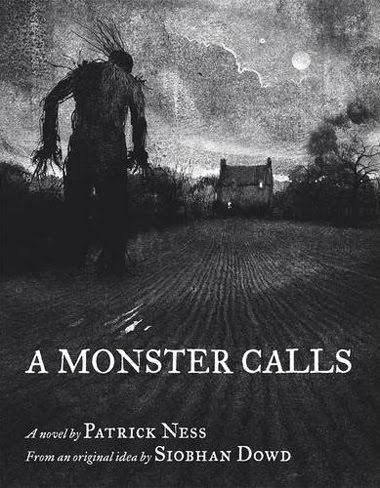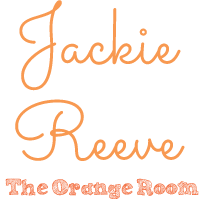 When I was in high school we lost my stepfather to lung cancer. He was sick for a full 2 years and passed away right before my sophomore year midterms. That experience is still so vivid in my memory that it overshadows and colors a great deal of my high school experience. It made me awkward and quiet for the first 2 years of high school, a 180 from the boisterous kid I had been. And not an advantage when I switched from public to Catholic school for 9th grade and knew absolutely no one. I disappeared almost entirely into an obsession with movies to avoid thinking about death and my own mortality every single day. Kids were mean. I was withdrawn. Guidance counselors wanted to talk about it, and I found myself inventing feelings about the situation to make them feel better, to give them a problem they could solve to soothe their extremely kind and earnest need to help me process the experience. I felt empathy for them because they so wanted to fix it.
When I was in high school we lost my stepfather to lung cancer. He was sick for a full 2 years and passed away right before my sophomore year midterms. That experience is still so vivid in my memory that it overshadows and colors a great deal of my high school experience. It made me awkward and quiet for the first 2 years of high school, a 180 from the boisterous kid I had been. And not an advantage when I switched from public to Catholic school for 9th grade and knew absolutely no one. I disappeared almost entirely into an obsession with movies to avoid thinking about death and my own mortality every single day. Kids were mean. I was withdrawn. Guidance counselors wanted to talk about it, and I found myself inventing feelings about the situation to make them feel better, to give them a problem they could solve to soothe their extremely kind and earnest need to help me process the experience. I felt empathy for them because they so wanted to fix it.
But dealing with illness and loss doesn’t work like that. I went through it in my own time, and by the end of high school I was a completely different person. In college, look out. It was like a cage was opened and out I flew.
But it left its scars. I make quilts for illness rather than offer words, because I honestly just can’t talk about such things. I strategize how I would cope if someone close to me vanished tomorrow, because I cannot bear the thought of being caught by surprise and out of control with grief.
Which is all leading up to say, Good Lord do I love this book. And it’s taken me ages to write about it. I finished this book in December, but every time I sat down to write about it I stopped. Even though everyone was talking about this book at the time, and I was really hoping it would get some Newbery attention (despite some questions of its eligibility), I couldn’t join the conversation. For me it was the kind of reading experience that I wanted to keep to myself, to protect from overanalysis and overthinking. I loved it so much that I wanted my thoughts about it to just stay mine for a little while.
This is the kind of smart, chilling, honest writing for children that treats their inner lives with respect and acknowledges their intelligence. There are a lot of writers who achieve this masterfully and plenty who do not. But what Patrick Ness accomplishes here, working from an idea started by Siobhan Dowd before her untimely death, is just breathtaking. And scary. Boy, is this book scary.
Conor is 13 and carrying the weight of the world on his shoulders. His father has remarried and moved to America with his new family. His grandmother isn’t very grandmotherly, and the two of them never seem to see eye to eye. The school bully has taken a special and particularly brutal interest in him. His mother’s illness has returned, launching the two of them back into a tumultuous schedule of treatments and sickness. And he is having the same horrific nightmare each and every night.
So when the Monster calls at his bedroom window, Conor is just too exhausted to be frightened. It’s not the monster he was expecting from his nightmares, and since he has dreamt some truly frightening things, the wild monster yew tree is more of an inconvenience than anything. He cannot bring himself to care about this monster and its demands, but the ancient creature will not leave him alone. It wants to tell him 3 stories, and after that Conor must tell the tree about his nightmare to truly be free of the monster.
Beautiful, haunting, and spot-on about the guilt and grief of loss at a young age. I related absolutely to the authenticity of Conor’s experience, and his catharsis at the end was masterfully handled. The illustrations by Jim Kay are perfection, and Jason Isaacs’ narration of the audio book is one of the best I’ve heard in recent years. Be warned that this is not for the youngest of kids. But it is powerful and important. This was the kind of book that was so absorbing I listened to it and read it; I needed to experience it in every way possible. No matter what won the Newbery, this was the best children’s book of the year.

What a very touching review Jackie – thanks you for writing it and relating it to your own experience so wisely. I don’t often write children’s books but I’ll look it out. Especially pertinent at the moment due to what our family is going through too, Thanks again,
I am a nurse who has worked alot in the geriatric population, with supportive social work staff and multigenerational families, so I learned a great deal prior to this book being written (wishing it had been written earlier!). Now I volunteer at a large hospice and have worked with pre and post bereavement teams and have donated this book and audio to the library, and I know it’s been bought very often to reread. I am currently a day camp nurse, and unfortunatly several of our counselors have lost mothers to breast cancer. I have lent a copy (my copies multiply of both books and audio) to the camp social worker, who is fastenated, we have had long talks (and today was just the first day of camp-we had staff week though!). I totally agree, Jackie, reading while listening is the best way to absorb the material, it was the way it held the most meaning for me. The lessons are age-less. I’m an adult with children in their late teens and twentys. My parents died over a decade ago, and it still hurts, and I still miss them. The nightmare is the same for everyone.
Hi again Jackie, wondering if you know any good books for younger children ie 4-5 yr old Daniel, to help with dealing with feelings abut bereavment? Drop me a line, or Ella, if you have sugggestions? Thanks, and love, Cora
This book is included in my favorite reading list. It’s a great book, very creative, very original. IT empowers the potential imaginative skills one has within oneself. A mesmerizing piece of literature it is.